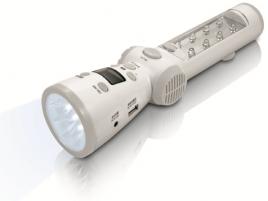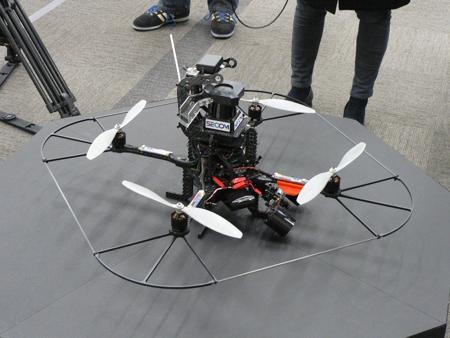So you think you have a refined sense of smell, do you? Well, forget that job as an aromachologist, ah, yes, the position actually does exist, there may soon be openings in Shanghai that will allow you to put your nose to work for the greater public good.
Read More
Posted by John Stuart Translations (Page 4)
Founded in 1872, Shiseido, one of the world’s oldest cosmetics companies and the fourth largest, announced on Feb. 28 that from April onward it would put an end to all testing on animals in the development of raw materials for its cosmetic and quasi-pharmaceutical products.
The Okinawa Convention and Visitors Bureau (OCVB) along with the prefectural government have cancelled their plans to use space on women’s bare thighs for marketing the islands as a graduation trip destination to students outside the prefecture. Citing criticism, the two bodies stated January 24, “Placing temporary tattoo-like stickers on the thighs of young women to advertise Okinawa is not in line with prefecture’s brand image.”
Read More
An Internet survey asking Japanese men and women aged 20 to 39 which company they would like a potential marriage partner to work for ranked Nintendo number one.
The survey, conducted November 28 and 29, 2012, received 500 valid responses. Filling out the top five were All Nippon Airways (ANA), Tanita (electronic scales), Google and Apple. Reasons given for choices were wide-ranging including, “It’s a hot company,” and “My partner is unlikely to gain a middle-aged bulge (working there).”
Read More
In a review of the current five-day school week currently being used in public schools across Japan, the Ministry of Education, Culture, Sports, Science and Technology said it is considering Saturday classes and a re-introduction of the six-day school week that was phased out between 1992 and 2002.
New curriculum guidelines mandating increased classroom hours resulting from a re-examination of the Ministry’s Yutori Kyoiku, (pressure-free education) program were introduced to elementary schools last year, and fully implemented in junior high schools this year. In seeking the use of Saturdays, the Ministry hopes to improve the academic ability of the nation’s youth by securing more teaching hours. It also hopes to dispel concerns of a widening “education gap” between public schools and private schools, many of which continue to implement Saturday classes.
Read More
Paying Just $11 a Day, Subcontractors Ripping Off Fukushima Nuclear Accident Decontamination Workers
The Tokyo Shimbun has discovered that workers involved with national government controlled cleanup projects resulting from the accident at the Fukushima Daiichi Nuclear Power Plant are being ripped off by subcontractors.
Despite being able to rent lodging facilities from the government and others for free or for very little money, contractors forcibly deduct inflated accommodation and meal charges from workers’ pay. When the 10,000 yen (US$111) a day “danger pay” provided to contractors by the government (read: taxpayers) is taken into consideration, it means the contractors themselves end up forking out a measly 1,000 yen (US$11) a day per worker.
Read More
Living in an earthquake-prone country like Japan means constant vigilance in terms of disaster preparedness. Though the Great East Japan Earthquake of 11 March 2011 struck during daylight hours, there’s no guarantee that a disaster of similar magnitude won’t strike at night. Most people keep a flashlight or two at home, however, if power is cut as a result of an earthquake, as groping your way around in the dark while in a panicked state might not be as easy as you think.
Thankfully, Tokyo’s Force Media group has come up with an ingenius solution to this problem. And it’s much more than just a regular-old flashlight…
Read More
Son, have you been drinking tonight?
Yes officer, I must say I’ve enjoyed a few libations this evening.
Well, I think you’d better step out of the car; we’ve got some pretty strict laws against that kind of stuff in this state.
But I wasn’t driving officer!
Isn’t anyone else in the car, son. Seems you’ve had more than just ‘a few’.
Honestly, Officer! Mr. Toyota has been at the controls the whole time…
Toyota Motor Corporation announced it would be unveiling a self-driving car at the Consumer Electronics Show (CES) being held in Las Vegas January 8 to 11, 2013. The car, a Lexus LS600, is outfitted with radars, cameras and an array of sensors that allow it to be cognizant of its immediate environment.
Read More
In an interview with well-informed sources on December 28, Japanese newspaper Sankei Shimbun discovered Chinese diplomatic papers created in 1950 used the Japanese name Senkaku to identify the Japanese-controlled islands in the East China Sea. The same document also contained language recognizing the Senkakus as a part of Okinawa.
Currently China claims the islands are its territory as “a part of Taiwan.” Recognition by China in 1950 that the islands are a part of Okinawa is contradictory to its current claim and weakens the foundation of its present position.
Read More
With Tibetans continuing to set themselves ablaze in protest of oppressive rule by Chinese authorities, state media for Qinghai province reported that the government of the province’s Huangnan Tibetan Autonomous Prefecture announced it would begin offering rewards of 200,000 yuan (about US$32,000) by December 27 to anyone at the scene who can prevent such suicides from occurring.
Read More
The Japanese love their insurance. According to the weekly tabloid Shukan Post, the average household in Japan pays 454,300 yen (approx. US$5,393) a year in life insurance premiums in an effort to feel safe and protect loved ones. Comprising just 2% of the global population, Japan pays 18% of the world’s total insurance premiums, this which works out to average insurance spending of US$3,500 per capita, the highest level in the world.
Read More
Saying customers were complaining about its cups being too full, Starbucks Japan started reducing the amount of java in each pour of drip coffee this month. According to the company, feedback pointed out their full-to-the-brim cups left no room for adding milk and were too easy to spill. Some customers, however, are voicing displeasure about the unannounced reduction to their caffeine fix.
Read More




 Tokyo Skytree turns pink for the cherry blossom season
Tokyo Skytree turns pink for the cherry blossom season Skyscraper sized Pokémon cards to appear in Tokyo all year long in Tocho projection mapping event
Skyscraper sized Pokémon cards to appear in Tokyo all year long in Tocho projection mapping event New unstaffed gyoza store in Tokyo sells pot stickers 24 hours a day
New unstaffed gyoza store in Tokyo sells pot stickers 24 hours a day Yakuzen ramen restaurant in Tokyo is very different to a yakuza ramen restaurant
Yakuzen ramen restaurant in Tokyo is very different to a yakuza ramen restaurant U.S.A. now the fastest-growing market for Japan’s high-tech toilets, now selling quicker than ever
U.S.A. now the fastest-growing market for Japan’s high-tech toilets, now selling quicker than ever W.T.F. Japan: Top 5 most ridiculous kanji handwriting shortcuts【Weird Top Five】
W.T.F. Japan: Top 5 most ridiculous kanji handwriting shortcuts【Weird Top Five】 Finally! Icees are coming to Japan!
Finally! Icees are coming to Japan! Japanese people reveal the six western foods they find most disgusting
Japanese people reveal the six western foods they find most disgusting Shizuoka hot springs town invites you to see one of the longest hina doll displays in Japan
Shizuoka hot springs town invites you to see one of the longest hina doll displays in Japan Tokyo’s “commuter boat” is an awesome hidden way to see the city from the water for dirt-cheap
Tokyo’s “commuter boat” is an awesome hidden way to see the city from the water for dirt-cheap The 10 most annoying things foreign tourists do on Japanese trains, according to locals
The 10 most annoying things foreign tourists do on Japanese trains, according to locals Starbucks Japan releases new sakura goods and drinkware for cherry blossom season 2026
Starbucks Japan releases new sakura goods and drinkware for cherry blossom season 2026 Naruto and Converse team up for new line of shinobi sneakers[Photos]
Naruto and Converse team up for new line of shinobi sneakers[Photos] Is Sapporio’s Snow Festival awesome enough to be worth visiting even if you hate the snow? [Pics]
Is Sapporio’s Snow Festival awesome enough to be worth visiting even if you hate the snow? [Pics] Japan has trams that say “sorry” while they ride around town…but why?
Japan has trams that say “sorry” while they ride around town…but why? Sakura Totoro is here to get spring started early with adorable pouches and plushies
Sakura Totoro is here to get spring started early with adorable pouches and plushies Starbucks Japan unveils new sakura Frappuccino for cherry blossom season 2026
Starbucks Japan unveils new sakura Frappuccino for cherry blossom season 2026 Poop is in full bloom at the Unko Museums for cherry blossom season
Poop is in full bloom at the Unko Museums for cherry blossom season Now is the time to visit one of Tokyo’s best off-the-beaten-path plum blossom gardens
Now is the time to visit one of Tokyo’s best off-the-beaten-path plum blossom gardens Playing Switch 2 games with just one hand is possible thanks to Japanese peripheral maker
Playing Switch 2 games with just one hand is possible thanks to Japanese peripheral maker Japan’s newest Shinkansen has no seats…or passengers [Video]
Japan’s newest Shinkansen has no seats…or passengers [Video] Foreigners accounting for over 80 percent of off-course skiers needing rescue in Japan’s Hokkaido
Foreigners accounting for over 80 percent of off-course skiers needing rescue in Japan’s Hokkaido Super-salty pizza sends six kids to the hospital in Japan, linguistics blamed
Super-salty pizza sends six kids to the hospital in Japan, linguistics blamed Foreign tourists in Japan will get free Shinkansen tickets to promote regional tourism
Foreign tourists in Japan will get free Shinkansen tickets to promote regional tourism Take a trip to Japan’s Dododo Land, the most irritating place on Earth
Take a trip to Japan’s Dododo Land, the most irritating place on Earth Archfiend Hello Kitty appears as Sanrio launches new team-up with Yu-Gi-Oh【Pics】
Archfiend Hello Kitty appears as Sanrio launches new team-up with Yu-Gi-Oh【Pics】 Survey asks foreign tourists what bothered them in Japan, more than half gave same answer
Survey asks foreign tourists what bothered them in Japan, more than half gave same answer Japan’s human washing machines will go on sale to general public, demos to be held in Tokyo
Japan’s human washing machines will go on sale to general public, demos to be held in Tokyo Starbucks Japan releases new drinkware and goods for Valentine’s Day
Starbucks Japan releases new drinkware and goods for Valentine’s Day We deeply regret going into this tunnel on our walk in the mountains of Japan
We deeply regret going into this tunnel on our walk in the mountains of Japan Studio Ghibli releases Kodama forest spirits from Princess Mononoke to light up your home
Studio Ghibli releases Kodama forest spirits from Princess Mononoke to light up your home Major Japanese hotel chain says reservations via overseas booking sites may not be valid
Major Japanese hotel chain says reservations via overseas booking sites may not be valid Put sesame oil in your coffee? Japanese maker says it’s the best way to start your day【Taste test】
Put sesame oil in your coffee? Japanese maker says it’s the best way to start your day【Taste test】 No more using real katana for tourism activities, Japan’s National Police Agency says
No more using real katana for tourism activities, Japan’s National Police Agency says W.T.F. Japan: Top 5 most ridiculous kanji handwriting shortcuts【Weird Top Five】
W.T.F. Japan: Top 5 most ridiculous kanji handwriting shortcuts【Weird Top Five】 Finally! Icees are coming to Japan!
Finally! Icees are coming to Japan! Japanese people reveal the six western foods they find most disgusting
Japanese people reveal the six western foods they find most disgusting Shizuoka hot springs town invites you to see one of the longest hina doll displays in Japan
Shizuoka hot springs town invites you to see one of the longest hina doll displays in Japan Tokyo’s “commuter boat” is an awesome hidden way to see the city from the water for dirt-cheap
Tokyo’s “commuter boat” is an awesome hidden way to see the city from the water for dirt-cheap “Denki Anma”: The Japanese traditional torment that you’ll be glad stays in Japan
“Denki Anma”: The Japanese traditional torment that you’ll be glad stays in Japan Speaking positively about marijuana online leads to arrest of Japanese man and woman
Speaking positively about marijuana online leads to arrest of Japanese man and woman Shimane has a secret hot spring town that feels like stepping into an old Japanese film
Shimane has a secret hot spring town that feels like stepping into an old Japanese film Shibuya Station’s Hachiko Gate and Yamanote Line stairway locations change next month
Shibuya Station’s Hachiko Gate and Yamanote Line stairway locations change next month Tour a stylish, minimalistic Muji House in new downtown Tokyo showroom
Tour a stylish, minimalistic Muji House in new downtown Tokyo showroom Cute coffins now available at Tokyo’s coffin relaxation salon[Photos]
Cute coffins now available at Tokyo’s coffin relaxation salon[Photos] Japan’s New Chitose Airport has the most useful signage for travelers ever: “Sushi, 60 meters”
Japan’s New Chitose Airport has the most useful signage for travelers ever: “Sushi, 60 meters” Japanese beef bowl restaurant serves up a breakfast don that’s dividing customers
Japanese beef bowl restaurant serves up a breakfast don that’s dividing customers